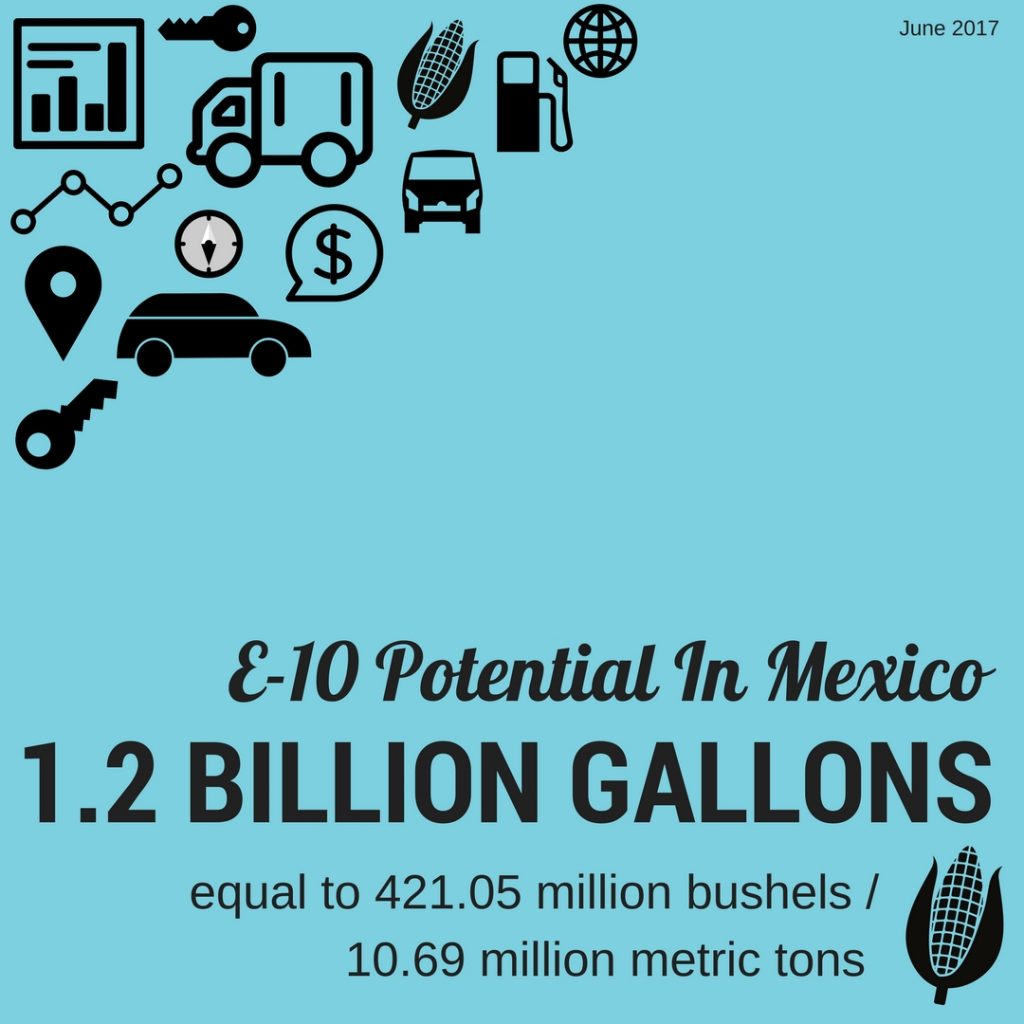As Mexico’s energy sector continues to evolve, the U.S. Grains Council (USGC) is running a series of technical workshops there to answer questions from local service station owners about how to utilize and profit from using ethanol.
The Council is conducting the workshops throughout Mexico in conjunction with AMPES, the Mexican association of service station equipment providers. The first workshop was held earlier in April in Tijuana with four additional workshops planned for other major cities in Mexico.
The sessions focus on questions that have emerged about using ethanol following changes in Mexican law that took effect in June 2017 that allow up to an E10 blend outside of three major cities (Monterrey, Mexico City and Guadalajara).
“We have made great progress, but we are still in the market access stage of seeing ethanol in Mexico,” said Ryan LeGrand, USGC director in Mexico.
“The gains we have made allow many service stations in the country to use E10, and they need to be ready for it. These workshops move from access to the practical use of ethanol and making sure that it is done right.”
Despite the new regulation, ethanol is still a new product in Mexico. Workshops like these help increase knowledge of the benefits and usage of ethanol. In Tijuana, the audience asked speakers about the laws regulating ethanol use, the costs associated with adapting stations to use ethanol (which are minimal except a few filter changes) as well as general pricing and supplier questions. LeGrand said the owners were particularly interested in how they could use ethanol to both save money and differentiate themselves from their competitors.
“We want to make sure these service stations are ready for ethanol, know what needs to be done at their station to prepare, the proper cleanout procedures, topics like that,” LeGrand said. “We also wanted to give these owners an idea of how they can differentiate themselves from other stations that are not offering ethanol-blended gasoline and how they can use ethanol, the most affordable oxygenate in the world, to make money for themselves as well.”
Subsequent workshops are planned throughout the spring, including one next week in Monterrey. Activities like these help educate end-users on the benefits of using ethanol and encourage them to ask specifically for ethanol from their suppliers – all part of the larger strategy to increase demand for U.S. ethanol in Mexico.
“We are working hard every day to realize the potential of the market – 1.2 billion gallons of ethanol at E10 nationwide,” LeGrand said. “While we should not think we will ship 100 percent of that down to Mexico, the potential for ethanol in Mexico is definitely worth spending time, energy and resources on – and that is exactly what we are doing.”
About The U.S. Grains Council
The U.S. Grains Council develops export markets for U.S. barley, corn, sorghum and related products including distiller’s dried grains with solubles (DDGS) and ethanol. With full-time presence in 28 locations, the Council operates programs in more than 50 countries and the European Union. The Council believes exports are vital to global economic development and to U.S. agriculture’s profitability. Detailed information about the Council and its programs is online at www.grains.org.

